Due to the covid pandemic, the International Commission for the Conservation of Atlantic Tunas (ICCAT) is currently meeting by correspondence.
One of the topics up for decision making is a conservation measure for mako sharks in the Atlantic. Shortfin mako is classified by IUCN as globally Endangered (Figure 1) and has been listed under CITES Appendix II[1] in 2019. However, in the Atlantic the situation is even more dire: ICCAT’s own Scientific Committee have warned[2] since 2017 that shortfin mako has been overfished and overfishing continues, while recovery of the North Atlantic stock will likely take ~25 years even if fishing could be cut to zero. But even then, there is only a 53% chance of rebuilding by 2045, while even a modest catch limit of 500 tonnes a year (including dead discards) has only a 52% probability of rebuilding by 2070!
Figure 1: Definition of IUCN Endangered

Why is the Global Tuna Alliance (GTA), a collaboration of retailers, wholesalers, suppliers and processors of tuna concerned about the conservation of sharks you ask?
Well, GTA partners are committed improving the environmental sustainability of tuna fisheries. This doesn’t stop with the tuna; sustainability of any fishery must consider the wider-impacts on the ecosystem. In this particular example, mako sharks are commonly caught as bycatch in tuna fisheries and are among the most common sharks caught for food, with the EU ranking first in the world for mako landings, primarily vessels from Spain and Portugal who are responsible for about 60% of all mako landings in the Atlantic.
The GTA position is that ICCAT should agree to protect shortfin mako sharks by heeding scientists’ warnings about North Atlantic depletion and South Atlantic imminent risk. Specifically:
- Immediately prohibit all shortfin mako retentions
- Ensure specific scientific advice for minimizing incidental mortality is developed and implemented as a matter of urgency.
This position is echoed by many other organisations including Pew, WWF, SharkProject, (38 signatories including two GTA Partners – World Wise Foods and M&S), Sciaena, and a joint position from The Ecology Action Centre, The Ocean Foundation, Shark Trust, Project AWARE, Defenders of Wildlife and the Humane Society International.
In 2019 the ICCAT Science Committee recommended a total ban on retention of North Atlantic shortfin makos and a maximum catch limit of 2001 tonnes of shortfin mako for the South Atlantic, but the EU, US, and Curaçao offered complex counter proposals that fell far short of scientific advice and these objections allowed thousands of tons of north Atlantic makos to continue to be landed as bycatch without limits and therefore not ending overfishing. The response was one of disbelief and disappointment.
So far in this years’ ICCAT correspondence meeting, three proposals relating to mako shark conservation were made by the contracting parties to ICCAT: from the EU, the US and Canada.
The EU proposes a total allowable catch (TAC) of north Atlantic shortfin mako of 500 tonnes, and this figure excludes dead discards and discards of live but potentially damaged fish. This will ultimately add to the fishing mortality and therefore the probability of rebuilding by 2070 will be less than 52%.
The US proposes a TAC of 700 tonnes in 2021 and 500 tonnes in 2022. And in addition, would continue to allow retaining alive animals above a certain size as caught as game by sport fishing. Again, this level of fishing mortality will provide a low probability (≤52%) of rebuilding by 2070. When it comes to sharks, it is generally recommended to seek a 70% probability of rebuilding the stock
Surprisingly, neither the EU nor the US proposal includes any catch limit for the South Atlantic, completely ignoring the scientific advice for the Southern Atlantic stock
Only, the Canadian proposal aligns fully with the ICCAT scientific committee recommendations. Senegal has now co-sponsored and furthermore, the UK has published a statement noting that a retention ban with no exemptions is the most appropriate course of action, and that they therefore also wish to become a co-sponsor of the Canadian proposal.
The GTA applauds the leadership being demonstrated by Canada, Senegal and the UK and challenges the EU and the US to follow the science. There are no excuses; the North Atlantic stock is at the verge of collapsing and the South Atlantic stock is on a similar trajectory. All excuses which are questioning the clear recommendation of the scientists must stop and ICCAT must take responsibility for the active conservation of this species.
[1] Appendix II includes species not necessarily threatened with extinction, but in which trade must be controlled in order to avoid utilization incompatible with their survival.
[2] https://www.iccat.int/Documents/Meetings/Docs/2019/REPORTS/2019_SMA_SA_ENG.pdf
